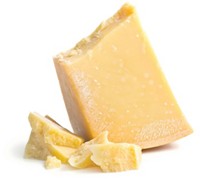Advertisement
Grab your lab coat. Let's get started
Welcome!
Welcome!
Create an account below to get 6 C&EN articles per month, receive newsletters and more - all free.
It seems this is your first time logging in online. Please enter the following information to continue.
As an ACS member you automatically get access to this site. All we need is few more details to create your reading experience.
Not you? Sign in with a different account.
Not you? Sign in with a different account.
ERROR 1
ERROR 1
ERROR 2
ERROR 2
ERROR 2
ERROR 2
ERROR 2
Password and Confirm password must match.
If you have an ACS member number, please enter it here so we can link this account to your membership. (optional)
ERROR 2
ACS values your privacy. By submitting your information, you are gaining access to C&EN and subscribing to our weekly newsletter. We use the information you provide to make your reading experience better, and we will never sell your data to third party members.
Environment
Pesticides In Pop
A global survey of fruit-flavored soft drinks uncovers a cornucopia of pesticide residues in most of the brands tested
by Sarah Everts
December 8, 2008
| A version of this story appeared in
Volume 86, Issue 49
European drinkers of fruit-flavored sodas may be getting a good dose of pesticides along with the citrus fizz. In a study of 102 fruit-based soft drinks from 15 countries around the world, researchers in Spain found a cornucopia of pesticides in 85% of the brands studied—in many cases at levels much higher than maximum European drinking water standards for pesticides (Anal. Chem. 2008, 80, 8966). Antonio Molina-Díaz of the University of Jaén, Amadeo R. Fernández-Alba of the University of Almería, and colleagues used liquid chromatography-electrospray time-of-flight mass spectrometry to detect residues of dozens of pesticides, including carbendazim, imazalil, prochloraz, and thiabendazole, which are usually applied postharvest to the skin of citrus fruits to increase shelf life. Although no pesticides were measured in the 11 samples obtained from the U.S.—likely because artificial flavors are used in the drinks, pesticide concentrations found in 60 British and Spanish brands were more than 25 times European Union standards. "Steps should be taken toward the removal of pesticides in these beverages" because many of the pesticides interfere with steroid hormone receptors, which is especially a concern for any children consuming the soft drinks, the researchers note.





Join the conversation
Contact the reporter
Submit a Letter to the Editor for publication
Engage with us on Twitter